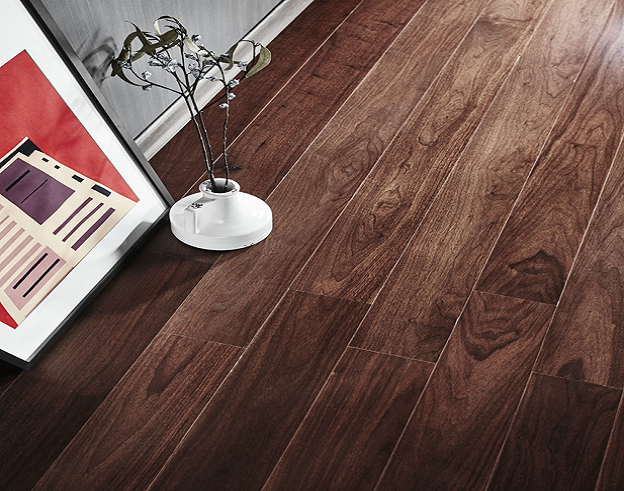Are you looking for the perfect flooring for your home? The choice can be overwhelming, with different rooms requiring different considerations. But have you considered engineered wood flooring? It’s a great alternative to traditional hardwood floors that offers a range of benefits. In this article, we’ll dive into the details and explore why engineered wood flooring might be the right choice for you.
Let’s start with the kitchen, the heart of many homes. Engineered wood flooring offers a similar warm and timeless aesthetic as hardwood floors but with added resistance to moisture. This is crucial in a space that experiences high foot traffic, spills, and varying temperatures. We’ll also discuss other options like porcelain and ceramic tiles that are easy to clean and come in a wide range of styles. Plus, we’ll take a look at luxury vinyl flooring, which has gained popularity in kitchens due to its durability, water resistance, and affordability.
But we won’t stop there! We’ll also discuss the benefits of engineered wood flooring for other rooms like the living room, basement, balcony, bedroom, and bathroom. You’ll learn about the different considerations and options available for each space. So if you’re ready to explore the world of engineered wood flooring and find the perfect fit for your home, keep reading! When it comes to home flooring options, there are many to choose from. Each room in your house has different requirements and considerations, and it’s crucial to select the right flooring for each space. In this article, we’ll explore the benefits of engineered wood flooring and why it might be the perfect choice for your home.
Engineered wood flooring is a popular alternative to traditional hardwood floors. It is made up of multiple layers of real wood veneer, compressed together with a strong adhesive. The top layer is a high-quality hardwood veneer, providing the same beautiful appearance as solid hardwood floors. Beneath the top layer, there are several layers of plywood, HDF, or fiberboard, which give the engineered wood its strength and stability.
One of the main advantages of engineered wood flooring is its superior stability. The layers of wood are arranged in a cross-grain pattern, which prevents the planks from expanding or contracting significantly with changes in temperature and humidity. This makes engineered wood flooring an excellent choice for areas with fluctuating moisture levels, such as kitchens, basements, and bathrooms.
Another benefit of engineered wood flooring is its versatility in installation. It can be installed in various ways, including floating, glued, or nailed down. This flexibility allows for easy installation over different types of subfloors, such as concrete, plywood, or existing flooring. Engineered wood can also be installed below grade, making it suitable for basements and other below-ground areas.
Durability is another key feature of engineered wood flooring. The multiple layers of real wood make it more resistant to warping, cupping, and other forms of damage, compared to solid hardwood floors. The top layer of hardwood veneer adds to its durability, as it can be sanded and refinished multiple times, allowing the floor to maintain its original beauty for years. With proper care and maintenance, engineered wood flooring can last for decades.
Engineered wood flooring also offers a wide range of design options. It comes in various wood species, finishes, and plank widths, allowing you to find the perfect style to match your home’s aesthetic. Whether you prefer a classic oak look or a more modern walnut finish, there is an engineered wood flooring option to suit your taste.
Maintenance is relatively easy with engineered wood flooring. Regular sweeping or vacuuming, along with occasional damp mopping, will keep it looking clean and fresh. Unlike carpets, engineered wood floors don’t trap dust, allergens, or pet dander, making them a great choice for those with allergies or respiratory issues.
In terms of cost, engineered wood flooring is generally more affordable than solid hardwood floors. The manufacturing process uses less high-quality hardwood, which helps reduce the price. Additionally, the installation process is often quicker and more straightforward, which can also save on labor costs.
In conclusion, engineered wood flooring offers numerous benefits that make it an excellent choice for many areas of your home. Its stability, durability, versatility, and wide range of design options make it a practical and attractive flooring solution. Whether you’re remodeling your kitchen, finishing your basement, or updating your living room, consider the many advantages of engineered wood flooring. With its timeless beauty and exceptional performance, it’s sure to enhance the look and feel of your home for years to come.
